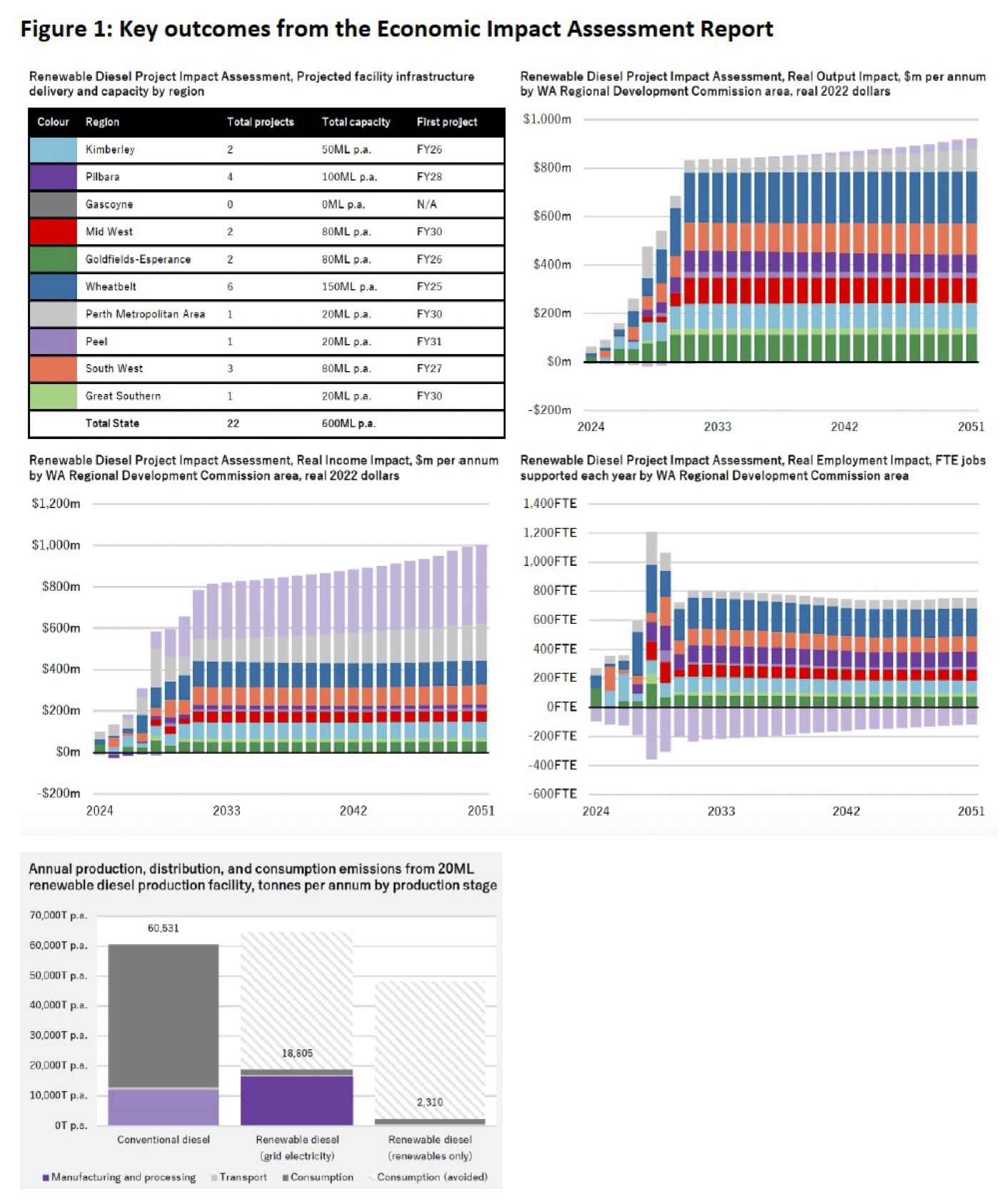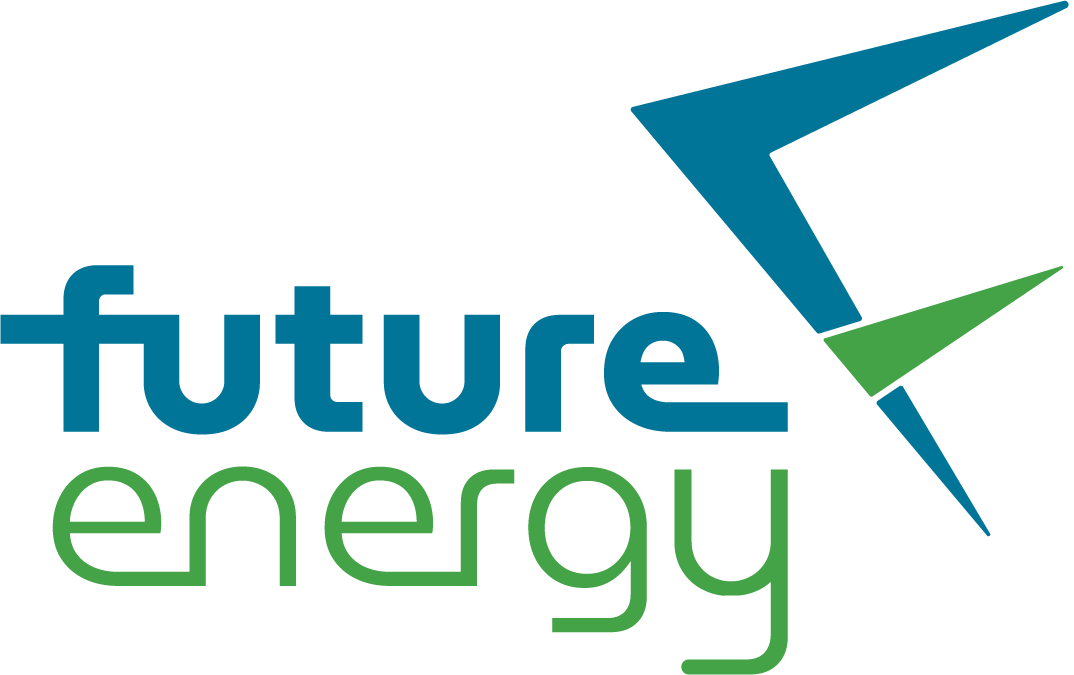
Renewable fuels study highlights significant potential national economic and environmental outcomes
FutureEnergy Australia (FEA) is pleased to announce the release of an independent economic assessment report undertaken by ACIL Allen.
The study assessed the state-wide economic benefits of a renewable diesel industry in Western Australia, based on replicating FEA’s first project in Narrogin into a State-wide regional-focused business model.
FEA has identified a pipeline of potential projects across Western Australia, and the economic impact of these projects was modelled to demonstrate the positive outcomes from these projects for the Western Australian economy.
The study showed FEA’s project pipeline, if fully developed, could deliver a $20.4 billion boost to Western Australia’s economy – equivalent to 1.3% of Western Australia’s GDP – over its lifetime.
Fully realised, FEA’s renewable fuels business would support a project pipeline of $4.5 billion capital expenditure and provide over 1,000 FTEs once the project pipeline operates at full scale, aiming to deliver 95% emissions reductions compared to mineral diesel usage (see Figure 1, below).
FEA’s proposed portfolio of projects was considered in a study and report prepared by leading advisory firm ACIL Allen and commissioned by WA’s remote and regional energy provider, Horizon Power.
Commenting on the report, FEA Managing Director Jennifer Lauber Patterson said, “Renewable diesel is a crucial element for assisting mining, agriculture, shipping, and heavy transport to transition to net carbon zero as well as providing fuel security and helping facilitate price stability for fuel users. Further, we are excited by the economic and social benefits this will provide the regional community.”
Mike Houlahan, Chief Financial Officer of Horizon Power said, “The ACIL Allen analysis confirms renewable diesel offers a decarbonisation pathway that can help us meet our emissions targets.
“Specifically, our work with FutureEnergy Australia provides an opportunity to unlock significant decarbonisation outcomes for power generation in regional WA while supporting economic growth and job creation.”
Ms Lauber Patterson said “Developing onshore renewable diesel production is a crucial part of guaranteeing Australia’s fuel security, and this report highlights that doing so can also create exceptional economic, social and environmental benefits for Western Australia.”
“One of the most significant additional impacts identified in the report is the circular economy created by utilisation of by-products from the production of the renewable diesel: biochar and wood vinegar (pyroligneous acid). These products are used in the agriculture sector to improve soil quality, achieve carbon sequestration, and displace synthetic fertilisers and other products. These products create a circular economy, as the feedstocks required for the renewable diesel are sourced from the agriculture sector, which can then use the by-products in their operations.”

About FutureEnergy Australia
FEA was established in 2021 to build and operate renewable fuel biorefineries in Western Australia and establish Australia’s first large-scale renewable fuel business.
FEA has received a Clean Energy Future Fund grant administered by the State of Western Australia’s Department of Water and Environmental Regulation (DWER) to support the development of FEA’s first project in Narrogin, Western Australia.
About renewable diesel
Renewable diesel is a 100 per cent carbon-neutral fuel that can be used as a cleaner alternative energy source for transport, mining, electricity generation and a range of other applications. It can be used as a drop-in replacement for conventional petroleum diesel.

© 2021 Future Energy Australia | Site by Gumfire | Privacy Policy | Terms and Conditions


